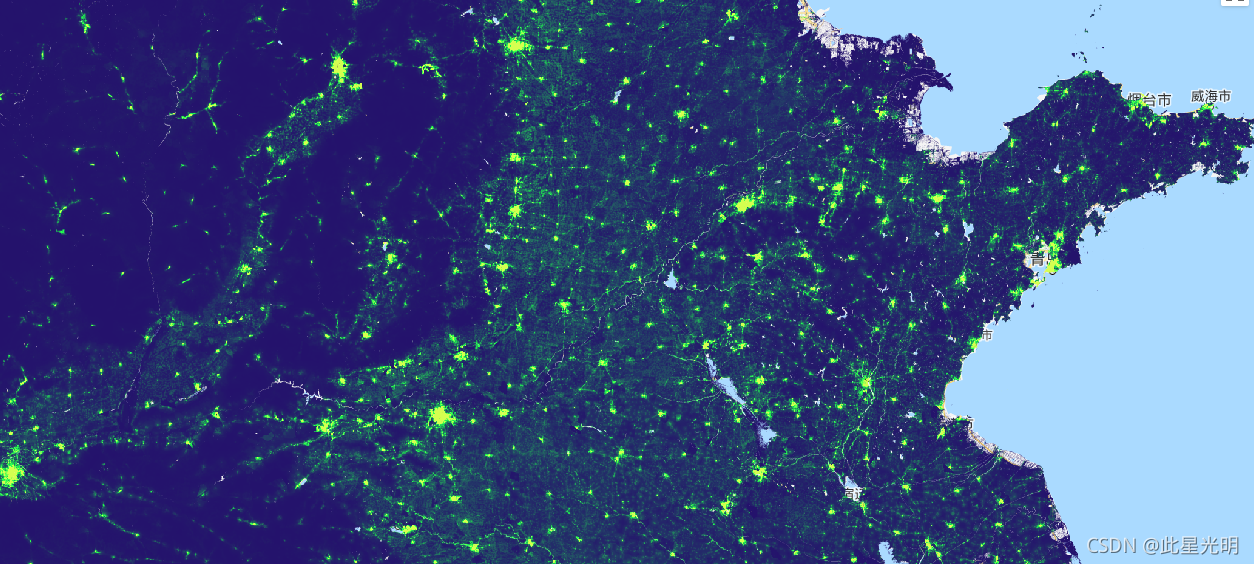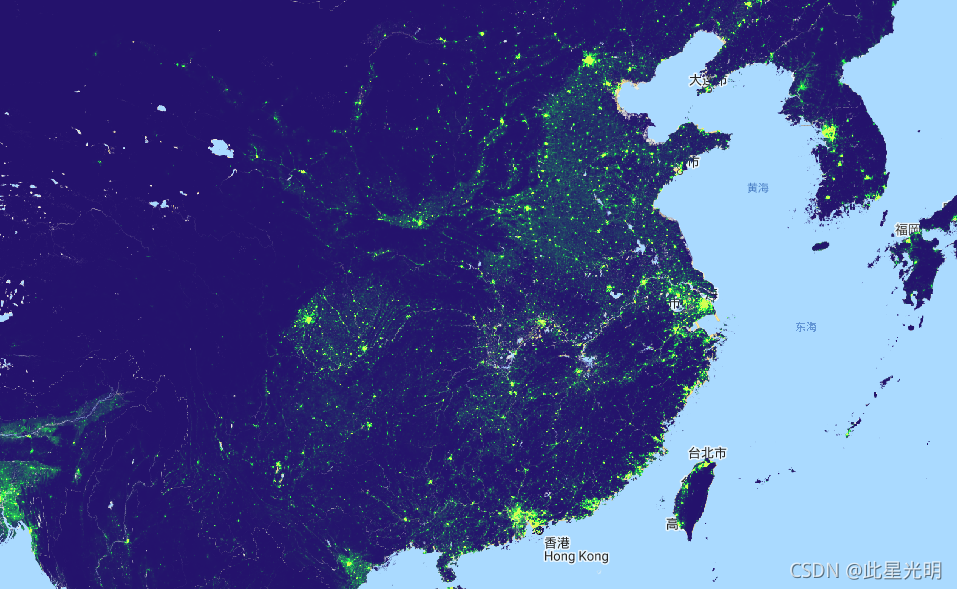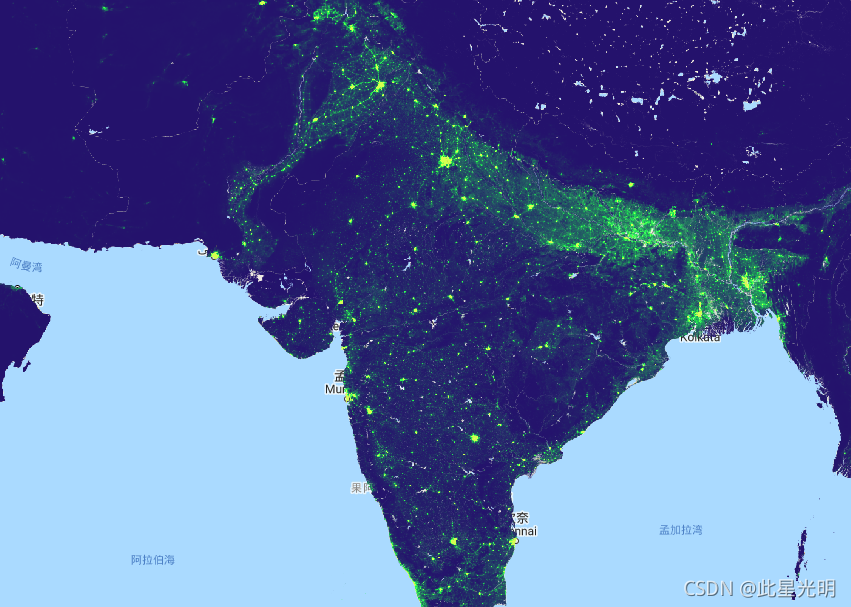WorldPop Global Project Population Data: Constrained Estimated Age and Sex Structures of Residential Population per 100x100m Grid Square
Global high-resolution, contemporary data on human population distributions are a prerequisite for the accurate measurement of the impacts of population growth, for monitoring changes, and for planning interventions. The WorldPop project aims to meet these needs through the provision of detailed and open access population distribution datasets built using transparent and peer-reviewed approaches.
Full details on the methods and datasets used in constructing the data, along with open access publications, are provided on the WorldPop website. In brief, recent census-based population counts matched to their associated administrative units are disaggregated to ~100x100m grid cells through machine learning approaches that exploit the relationships between population densities and a range of geospatial covariate layers. The mapping approach is Random Forest-based dasymetric redistribution.
This dataset contains top-down constrained breakdown of estimated population by age and gender groups. Currently only 2020 data are present.
Top-down constrained age/sex structure estimate datasets for individual countries for 2020 at 100m spatial resolution with country totals adjusted to match the corresponding official United Nations population estimates that have been prepared by the Population Division of the Department of Economic and Social Affairs of the United Nations Secretariat (2019 Revision of World Population Prospects).
See explanation of constrained vs unconstrained datasets.
Further WorldPop gridded datasets on population age structures, poverty, urban growth, and population dynamics are freely available on the WorldPop website. WorldPop represents a collaboration between researchers at the University of Southampton, Universite Libre de Bruxelles, and University of Louisville. The project is principally funded by the Bill and Melinda Gates Foundation.
全球高分辨率的当代人类人口分布数据是准确测量人口增长的影响、监测变化和规划干预措施的先决条件。世界人口项目旨在通过提供使用透明和同行评议的方法建立的详细和开放的人口分布数据集来满足这些需求。
关于构建数据的方法和数据集的全部细节,以及公开访问的出版物,都在WorldPop网站上提供。简而言之,最近基于人口普查的人口计数与其相关的行政单位相匹配,通过机器学习的方法分解到约100x100米的网格单元,利用人口密度和一系列地理空间协变量层之间的关系。映射的方法是基于随机森林的决裂再分配。
这个数据集包含了自上而下的按年龄和性别组的估计人口细分。目前只有2020年的数据。
自上而下受限的2020年单个国家的年龄/性别结构估计数据集,空间分辨率为100米,国家总数经过调整,与联合国秘书处经济和社会事务部人口司编制的相应的联合国官方人口估计数据相匹配(《世界人口前景》2019年修订版)。
见对受约束与非受约束数据集的解释。
更多关于人口年龄结构、贫困、城市增长和人口动态的WorldPop网格化数据集可在WorldPop网站免费获取。WorldPop是南安普顿大学、布鲁塞尔自由大学和路易斯维尔大学的研究人员之间的合作。该项目主要由比尔和梅林达-盖茨基金会资助。
Dataset Availability
2020-01-01T00:00:00 - 2021-01-01T00:00:00
Dataset Provider
WorldPop
Collection Snippet
ee.ImageCollection("WorldPop/GP/100m/pop_age_sex_cons_unadj")
Resolution
92.77 meters
Bands Table
Name | Description | Min* | Max* |
|---|---|---|---|
population | Estimated number of people residing in each grid cell | 0 | 21171 |
M_0 | Estimated number of men between 0 and 1 years old residing in each grid cell | ||
M_1 | Estimated number of men between 1 and 4 years old residing in each grid cell | ||
M_5 | Estimated number of men between 5 and 9 years old residing in each grid cell | ||
M_10 | Estimated number of men between 10 and 14 years old residing in each grid cell | ||
M_15 | Estimated number of men between 15 and 19 years old residing in each grid cell | ||
M_20 | Estimated number of men between 20 and 24 years old residing in each grid cell | ||
M_25 | Estimated number of men between 25 and 29 years old residing in each grid cell | ||
M_30 | Estimated number of men between 30 and 34 years old residing in each grid cell | ||
M_35 | Estimated number of men between 35 and 39 years old residing in each grid cell | ||
M_40 | Estimated number of men between 40 and 44 years old residing in each grid cell | ||
M_45 | Estimated number of men between 45 and 49 years old residing in each grid cell | ||
M_50 | Estimated number of men between 50 and 54 years old residing in each grid cell | ||
M_55 | Estimated number of men between 55 and 59 years old residing in each grid cell | ||
M_60 | Estimated number of men between 60 and 64 years old residing in each grid cell | ||
M_65 | Estimated number of men between 65 and 69 years old residing in each grid cell | ||
M_70 | Estimated number of men between 70 and 74 years old residing in each grid cell | ||
M_75 | Estimated number of men between 75 and 79 years old residing in each grid cell | ||
M_80 | Estimated number of men 80 years old or above residing in each grid cell | ||
F_0 | Estimated number of women between 0 and 1 years old residing in each grid cell | ||
F_1 | Estimated number of women between 1 and 4 years old residing in each grid cell | ||
F_5 | Estimated number of women between 5 and 9 years old residing in each grid cell | ||
F_10 | Estimated number of women between 10 and 14 years old residing in each grid cell | ||
F_15 | Estimated number of women between 15 and 19 years old residing in each grid cell | ||
F_20 | Estimated number of women between 20 and 24 years old residing in each grid cell | ||
F_25 | Estimated number of women between 25 and 29 years old residing in each grid cell | ||
F_30 | Estimated number of women between 30 and 34 years old residing in each grid cell | ||
F_35 | Estimated number of women between 35 and 39 years old residing in each grid cell | ||
F_40 | Estimated number of women between 40 and 44 years old residing in each grid cell | ||
F_45 | Estimated number of women between 45 and 49 years old residing in each grid cell | ||
F_50 | Estimated number of women between 50 and 54 years old residing in each grid cell | ||
F_55 | Estimated number of women between 55 and 59 years old residing in each grid cell | ||
F_60 | Estimated number of women between 60 and 64 years old residing in each grid cell | ||
F_65 | Estimated number of women between 65 and 69 years old residing in each grid cell | ||
F_70 | Estimated number of women between 70 and 74 years old residing in each grid cell | ||
F_75 | Estimated number of women between 75 and 79 years old residing in each grid cell | ||
F_80 | Estimated number of women 80 years old or above residing in each grid cell |
* = Values are estimated
数据属性:
Name | Type | Description |
|---|---|---|
country | String | Country |
year | Double | Year |
引用:
Please cite the WorldPop website as the source: [www.worldpop.org] (https://www.worldpop.org).
Americas population data: Alessandro Sorichetta, Graeme M. Hornby, Forrest R. Stevens, Andrea E. Gaughan, Catherine Linard, Andrew J. Tatem, 2015, High-resolution gridded population datasets for Latin America and the Caribbean in 2010, 2015, and 2020, Scientific Data, doi:10.1038/sdata.2015.45
Africa population count data: Linard, C., Gilbert, M., Snow, R.W., Noor, A.M. and Tatem, A.J., 2012, Population distribution, settlement patterns and accessibility across Africa in 2010, PLoS ONE, 7(2): e31743.
Asia population count data: Gaughan AE, Stevens FR, Linard C, Jia P and Tatem AJ, 2013, High resolution population distribution maps for Southeast Asia in 2010 and 2015, PLoS ONE, 8(2): e55882.
代码:
var dataset = ee.ImageCollection("WorldPop/GP/100m/pop_age_sex");var visualization = {
bands: ['population'],
min: 0.0,
max: 50.0,
palette: ['24126c', '1fff4f', 'd4ff50']
};Map.setCenter(113.643, 34.769, 7);
Map.addLayer(dataset, visualization, "Population");


